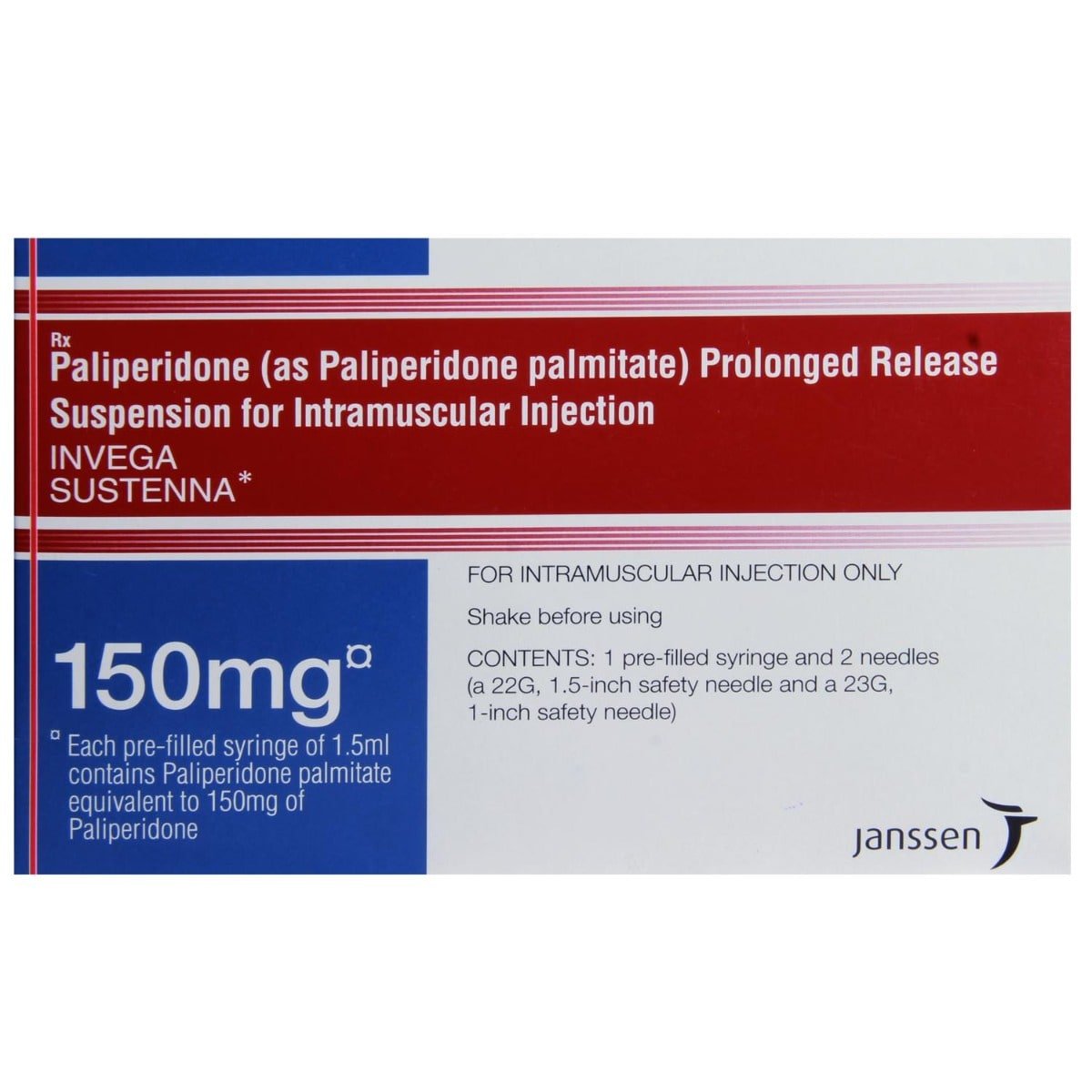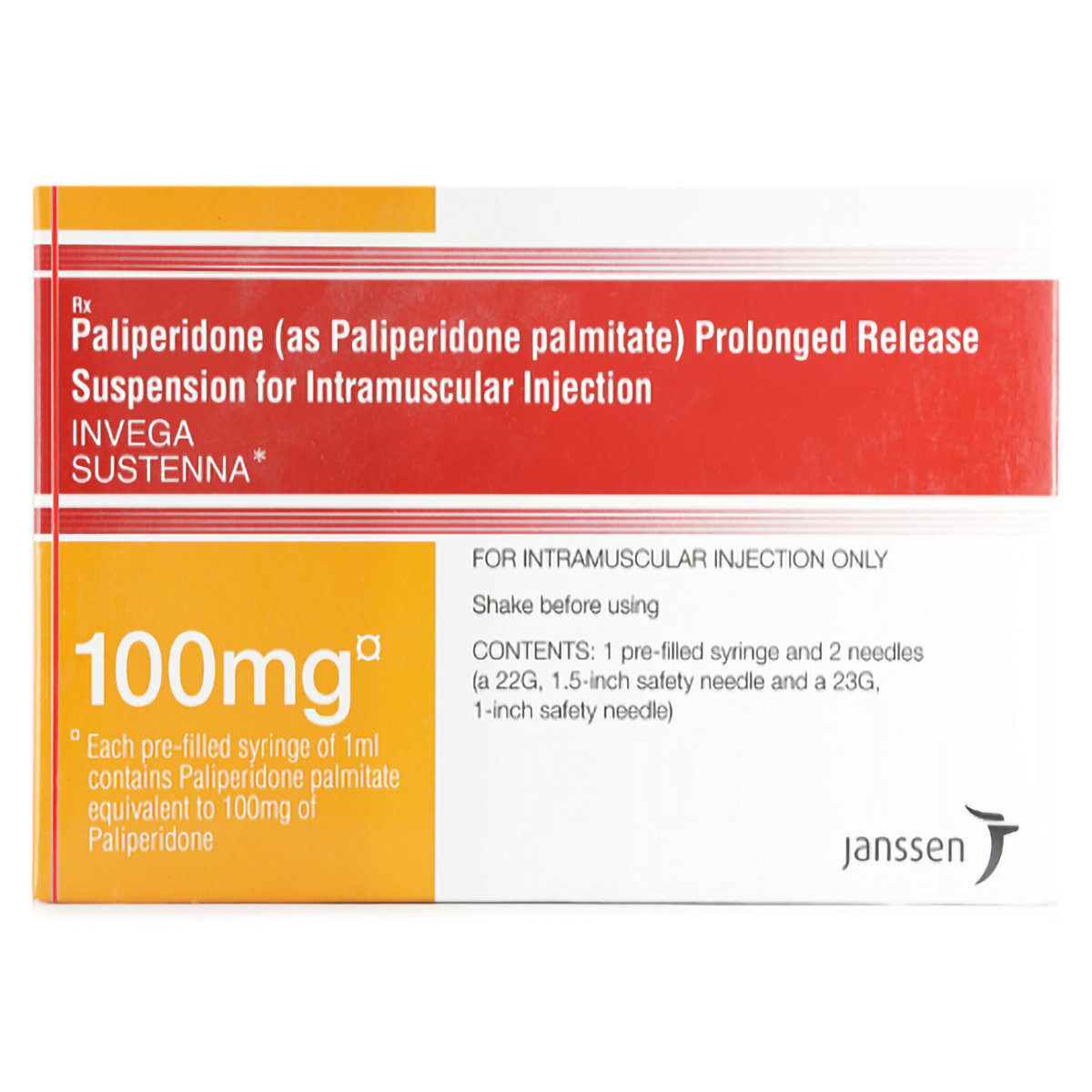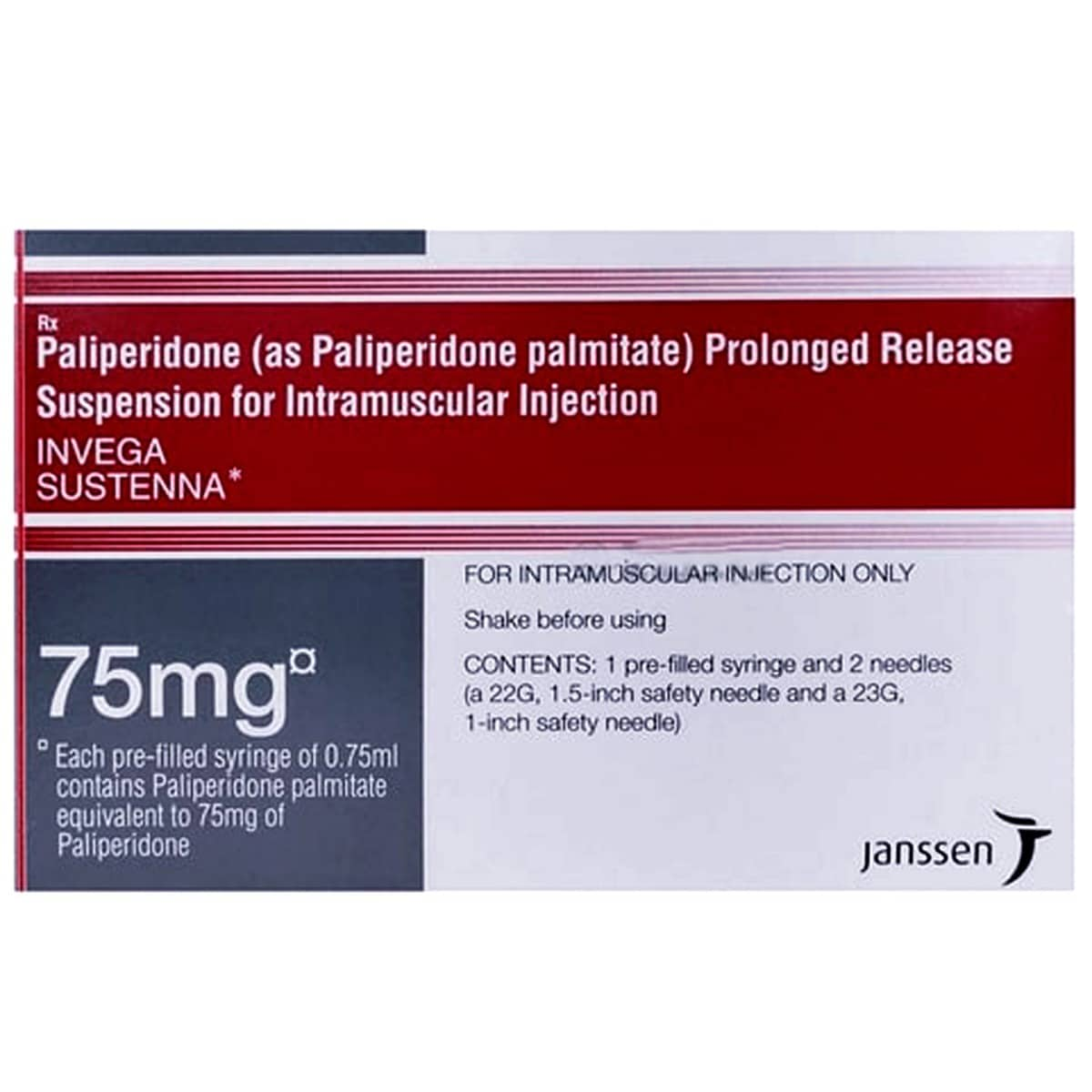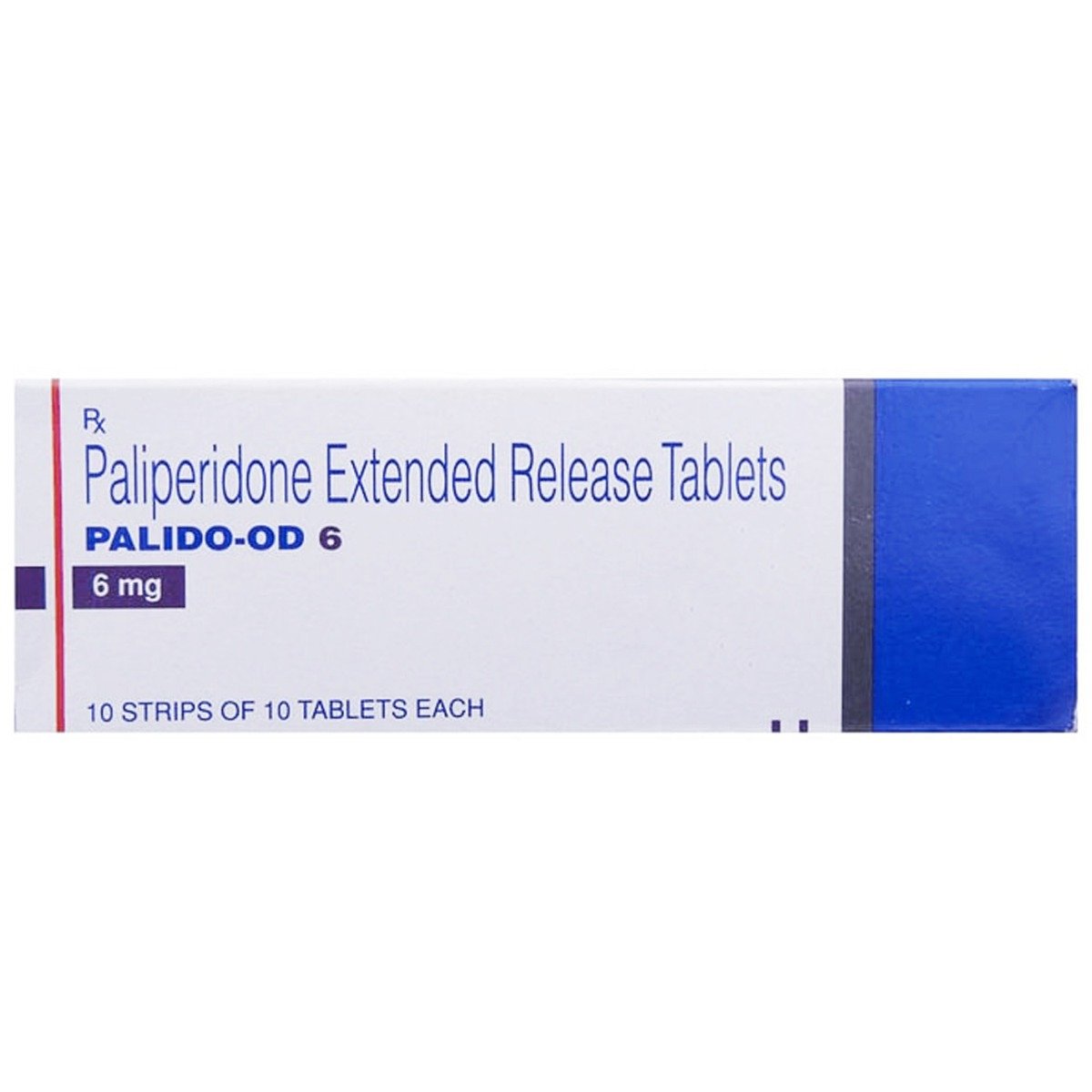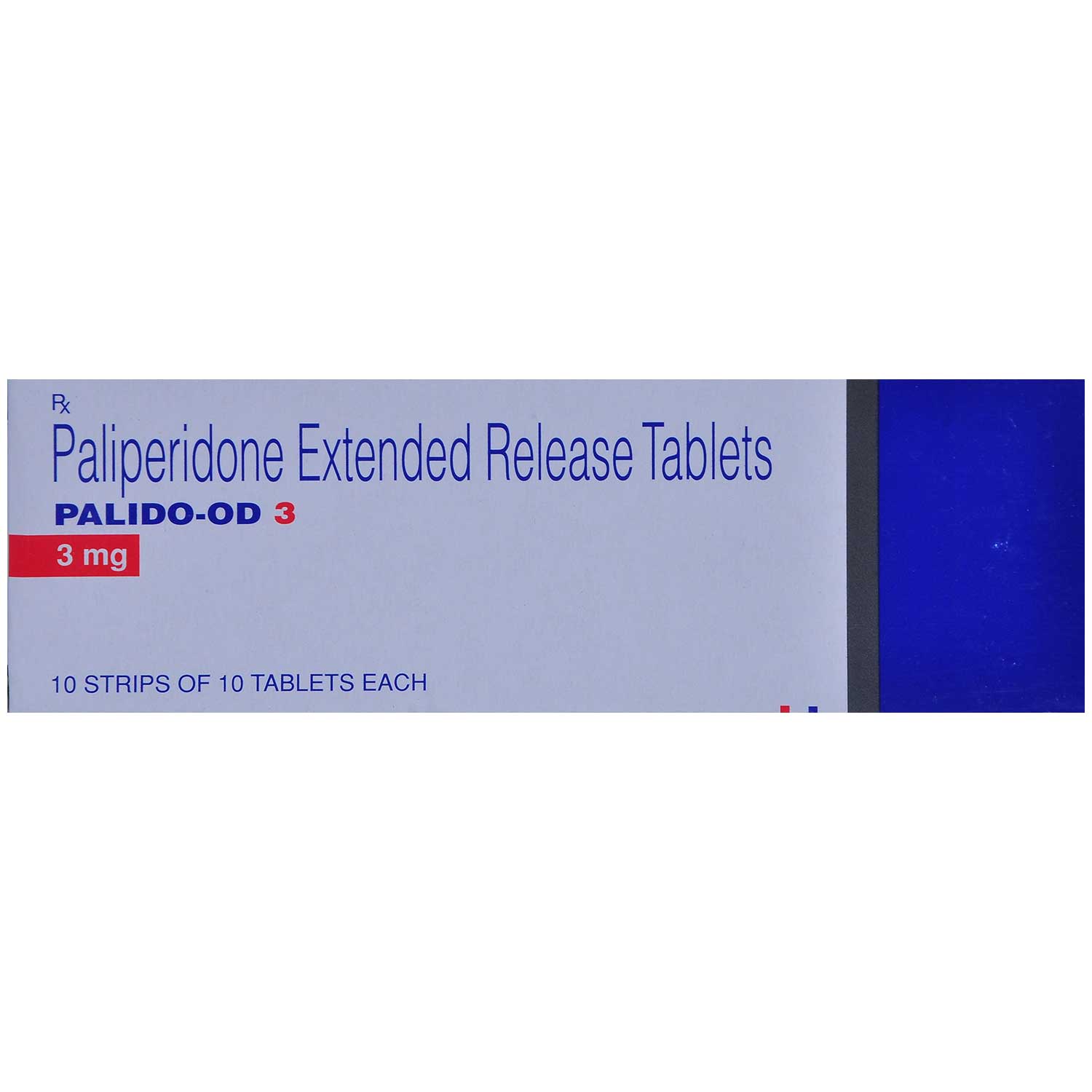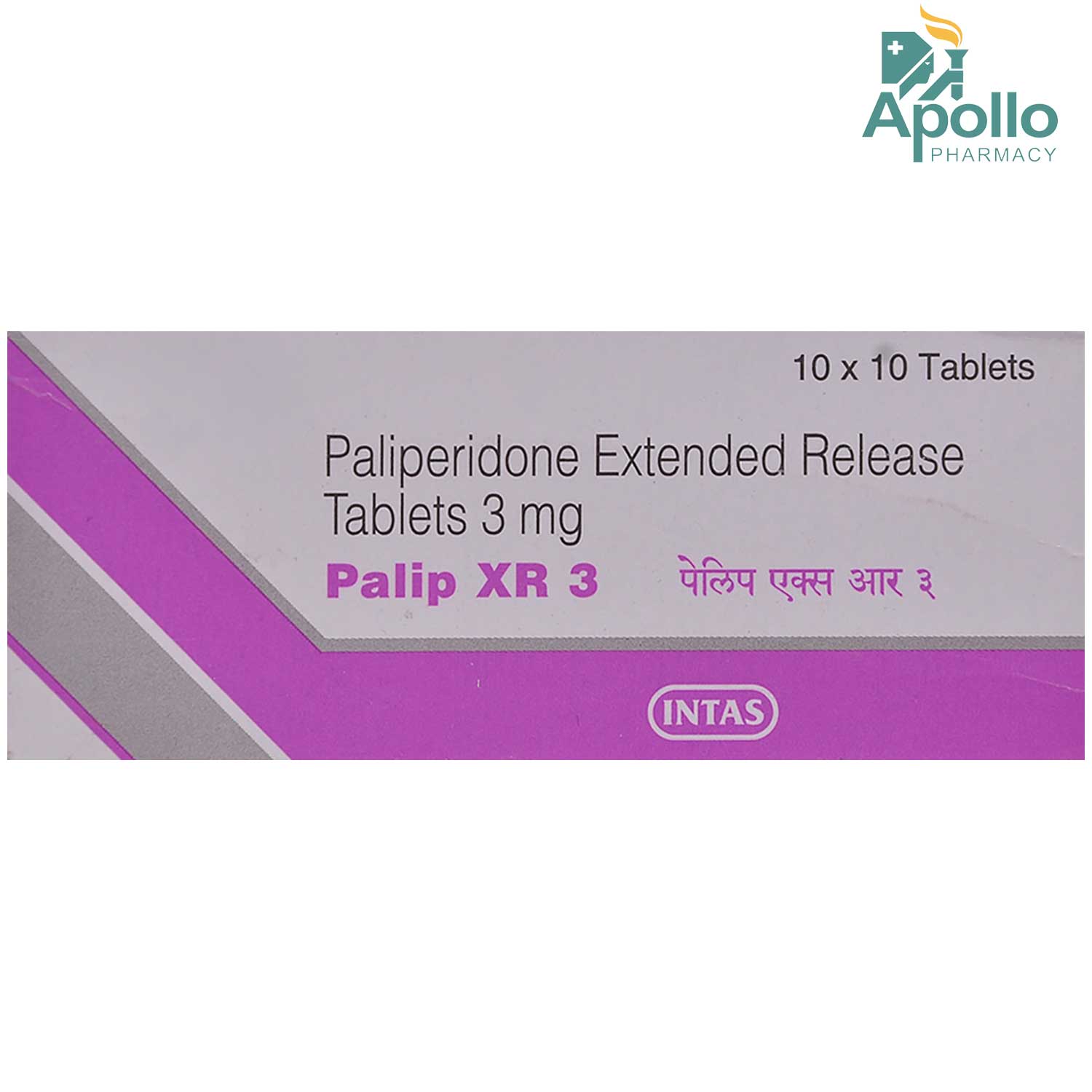Paliperidone
About Paliperidone
Paliperidone belongs to a group of medicines called 'antipsychotics' used to treat schizophrenia and manic depression (or bipolar disorder). Paliperidone also treats short-term treatment of long-term aggression in people with Alzheimer's dementia and mentally disabled children. Schizophrenia is a mental condition in which the person may feel, hear or see things that are not there, believe things that are not true, or feel unusually suspicious or confused. Manic depression, or bipolar disorder, is a severe brain disorder in which a person experiences extreme mood swings (variance in thinking) and frequent mood and behaviour changes.
Paliperidone contains 'Paliperidone' that works by blocking the effects of chemical messengers in the brain (i.e., dopamine and serotonin), thereby helping improve mood, behaviour and thoughts. Paliperidone elevates the symptoms of the disease and prevents them from returning.
Take Paliperidone as your doctor has prescribed it. In some cases, you may experience common side effects such as Parkinsonism, difficulty sleeping, sleepiness, depression, anxiety, restlessness, shortness of breath, abdominal pain, dizziness and headache. Most of these side effects do not require medical attention and will resolve gradually over time. However, you are advised to talk to your doctor if you experience these side effects persistently.
To treat your condition effectually, continue taking Paliperidone for as long as your doctor has prescribed. Do not take Paliperidone if you are pregnant or breastfeeding unless prescribed. Paliperidone causes drowsiness and dizziness, do not drive unless you are alert. Paliperidone can be given to children if prescribed by the doctor for treating conduct disorder. Paliperidone should not be given to children for treating schizophrenia or mania. Avoid consuming alcohol with Paliperidone as it could lead to increased drowsiness and dizziness. Keep your doctor informed about your health condition and medicines to rule out any side effects.
Uses of Paliperidone
Medicinal Benefits
Paliperidone belongs to a group of medicines called antipsychotics used to treat schizophrenia in adults and children above 13 years old and bipolar disorder in children at least ten years of age. Paliperidone also treats short-term treatment of long-term aggression in people with Alzheimer's dementia and mentally disabled children. Paliperidone improves mood and behaviour in people with an imbalance of chemicals known as neurotransmitters in their brains. Thus, Paliperidone relieves psychotic symptoms like delusions, hallucinations, confusion, disturbing thoughts and lack of self-awareness. Besides this, it also treats irritability symptoms in children with autism who are 5-16 years of age.
Directions for Use
Storage
Side Effects of Paliperidone
- Difficulty in sleeping
- Sleepiness
- Depression
- Anxiety
- Restlessness
- Shortness of breath
- Abdominal pain
- Dizziness
- Headache
Drug Warnings
Do not take Paliperidone if you are allergic to Paliperidone or any of its contents. Do not take Paliperidone if you are pregnant or breastfeeding unless prescribed. Paliperidone causes drowsiness and dizziness, do not drive unless you are alert. Paliperidone can be given to children above ten years if prescribed by the doctor for treating a mental condition like schizophrenia and bipolar disorder. Avoid consuming alcohol along with Paliperidone as it could lead to increased drowsiness and dizziness. Rise slowly from sitting or lying position as Paliperidone causes orthostatic hypotension (sudden lowering in blood pressure leading to dizziness on standing). Inform your doctor before taking Paliperidone if you have diabetes, as Paliperidone can cause an increase in blood sugar levels. Paliperidone may not be suitable for people with a history of prolactin-dependent breast cancer as Paliperidone increases prolactin levels. Paliperidone should not be used in adults to treat dementia-related psychosis.
Drug Interactions
Drug-Drug Interactions: Paliperidone may have interaction with medicines used to treat schizophrenia and bipolar disorder (aripiprazole), anxiety disorders (lorazepam, diazepam, alprazolam), depression (citalopram, duloxetine, fluoxetine, escitalopram, trazodone, sertraline), allergy (diphenhydramine, hydroxyzine), mania (divalproex sodium), fits (gabapentin, clonazepam, lamotrigine, pregabalin ), pain (oxycodone, tramadol), asthma (albuterol), psychosis (quetiapine).
Drug-Food Interactions: Paliperidone may interact with alcohol, obesity, and high cholesterol levels.
Drug-Disease Interactions: Paliperidone may have interactions with dementia (memory loss), CNS depression, liver disease, seizures, low blood pressure, diabetes, lipid alterations, weight gain, parkinsonism, acute alcohol intoxication, neuroleptic malignant syndrome (occurs due to reaction with anti-psychotic drugs), Tardive dyskinesia (repetitive, involuntary movements), irregular heartbeat (with QT interval prolongation), kidney impairment/disease, blood abnormalities, lipid alterations, Priapism (prolonged erection of the penis), and hyperprolactinemia (higher levels of prolactin in the blood).
Drug-Drug Interactions Checker List:
Safety Advice

Alcohol
unsafeAvoid consumption of alcohol while taking Paliperidone as it may cause increased drowsiness and lower your blood pressure.

Pregnancy
cautionAvoid taking Paliperidone if you are pregnant unless prescribed by a doctor. Please consult your doctor if you have any concerns regarding this, your doctor will prescribe only if the benefits outweigh the risks.

Breast Feeding
cautionPaliperidone can pass into the breastmilk, so it is not safe to breastfeed while taking Paliperidone. Inform your doctor before taking the Paliperidone; your doctor will decide whether the Paliperidone can be taken by breastfeeding mothers or not. Tell your doctor if your baby has symptoms of dizziness or tremor.

Driving
unsafePaliperidone causes tiredness, dizziness and vision problems. Do not drive or operate machinery without consulting your doctor.

Liver
cautionDose adjustment may be needed in patients with liver impairment. Please consult your doctor if you have a liver impairment or any concerns regarding this.

Kidney
cautionDose adjustment may be needed in patients with kidney impairment. Please consult your doctor if you have kidney impairment or any concerns regarding this.

Children
cautionThe safety and efficacy of Paliperidone are not established in children under the age of 18 years.
Habit Forming
Diet & Lifestyle Advise
- Maintain a healthy diet and exercise regularly.
- Regularly attend therapy sessions.
- Perform meditation and yoga.
- Follow a regular sleep pattern.
- Avoid smoking and alcohol consumption.
- Learn about your condition, understand the risk factors and follow the doctor’s treatment plan.
Special Advise
While taking Paliperidone, you may become more sensitive to extreme temperature conditions (like too hot or too cold), so it is advisable to avoid getting too hot or too hot or dehydrated, especially during summer. Drink plenty of fluid and water to cope with this condition.
Patients Concern
Disease/Condition Glossary
Schizophrenia: It is a condition in which the person may see, hear or feel things that are not there, believe things that are not true, or feel unusually suspicious or confused. Symptoms include hallucinations, delusions, thought disorders, movement disorders, disorganized thinking, loss of interest, lack of emotions, etc.
Manic depression (bipolar disorder): It is a serious brain disorder in which a person goes through unusual mood changes (mood swings) and frequent changes in his/her behaviour and thinking.
FAQs
Paliperidone works by balancing the chemical messengers called neurotransmitters and blocking the effect of dopamine and serotonin located in the brain, thereby helps in improving mood, behavior and thoughts.
Paliperidone causes tiredness, dizziness and vision problems. So, it is advisable not to drive or operate machinery without consulting your doctor. It may also lower your blood pressure on sudden standing leading to dizziness, so try to get up easily to avoid this.
Paliperidone may cause an increase in blood glucose (sugar) levels. So, regular monitoring of blood sugar levels is advised while taking Paliperidone. Diabetes patients should consult a doctor before taking Paliperidone.
Yes, orthostatic hypotension could be a side-effect of Paliperidone. Orthostatic hypotension is a sudden lowering in blood pressure leading to dizziness on standing. If you experience this, do not try to stand up suddenly or start walking; instead, lie down and get up slowly only when you feel better. People taking Paliperidone are advised to regularly monitor their blood pressure levels to avoid such unpleasant events.
Paliperidone may make you sweat less, making you more likely to get heatstroke. Avoid doing things that may cause you to overheat, such as hard work or exercise in hot weather, or using hot tubs. When the weather is hot, drink a lot of fluids and dress lightly.
Dry mouth could be a side-effect of Paliperidone. Limiting caffeine intake, avoiding smoking and mouthwashes containing alcohol, drinking water regularly, and chewing sugar-free gum/candy might help in stimulating saliva and thereby prevents drying of the mouth.
Paliperidone is known to cause increased mortality in people who are elderly with dementia. So, please inform your doctor if you have dementia; before starting Paliperidone.

